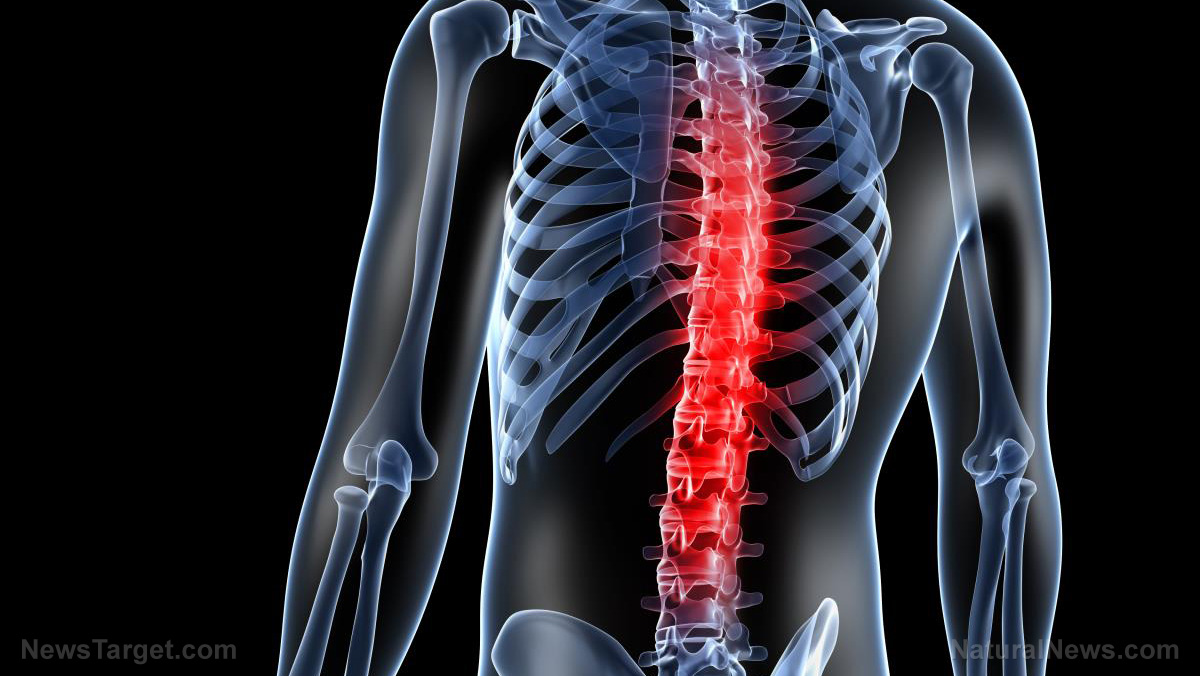Can choline be used as an alternative treatment for Alzheimer’s disease?
03/11/2019 / By Cassie B.

Modern medicine is capable of many great things, but even with all of today’s advancements, there are still some very vexing illnesses that researchers and doctors struggle to keep under control. Alzheimer’s disease is one such condition, leaving patients, their devastated families and experts alike with more questions than answers. Right now, we don’t know exactly what causes it and there aren’t any cures, but new research indicates that the answer to everyone’s prayers could be on your plate.
Researchers from Arizona State University have been investigating the effects of choline, a nutrient found in food that is showing promise in preserving memory.
Their study used mice who were bred to display symptoms of Alzheimer’s. When they were given high amounts of choline in their diet, what they found was groundbreaking: Their offspring showed improvements in spatial memory compared to those who were given a normal regimen of choline in the womb. Choline supplementation not only protected the mice who received it during gestation and lactation, but it also protected their offspring even though they were not given any direct supplementation. The researchers believe they inherited changes in their genes that offered this benefit.
In other words, choline could help protect against this illness across several generations. It was the first time researchers have been able to show the transgenerational benefits of choline supplementation.
How can choline protect against Alzheimer’s?
There are two ways that choline can protect the brain from Alzheimer’s. First, it lowers the amino acid homocysteine, which acts as a strong neurotoxin and contributes to some Alzheimer’s disease hallmarks, like amyloid plaque formation and neurodegeneration. Homocysteine doubles a person’s risk of developing the disease and is found in high levels in people suffering from it. Choline transforms homocysteine into a helpful chemical known as methionine instead.
The other way it protects the brain is by lowering the activation of cells known as microglia that clear debris away from the brain. Microglia aren’t all bad; their functions are a useful part of keeping the brain healthy. However, they can sometimes get out of control, which is what happens in Alzheimer’s disease, spurring brain inflammation and neuron death. Supplementing with choline reins this activity in to provide protection from Alzheimer’s.
Many people falling short on choline intake
Unfortunately, researchers say that nine out of every 10 women fail to maintain the recommended levels of 550 milligrams of choline per day for optimal brain development in their developing children. This study’s lead author, Dr. Ramon Velazquez, said: “Choline deficits are associated with failure in developing fetuses to fully meet expected milestones like walking and babbling. But we show that even if you have the recommended amount, supplementing with more in a mouse model gives even greater benefit.”
The mice showed their spatial memory benefits via testing in a water maze. The researchers confirmed the effects by examining tissue from their hippocampus, the part of the brain that serves a vital role in forming memories. They discovered the choline supplementation had induced epigenetic alterations.
It’s an exciting finding given the high safety of choline, particularly when compared to pharmaceutical medication. According to the study’s authors, you’d need to take around nine times the recommended daily amount to see negative side effects. Controlled clinical trials in humans will be used to fully determine how effective choline could be against Alzheimer’s.
Studies on choline that have already been carried out in humans show that those who consume plenty of the nutrient perform better on memory tests and are less likely to have changes in their brains associated with dementia.
According to the National Institutes of Health, some of the best sources of choline include beef liver, hard-boiled eggs, beef top round, chicken breast, cod, mushrooms and potatoes. With 13.5 million Americans expected to have Alzheimer’s disease by the middle of this century, the idea that an essential nutrient could help stave off the illness has the potential to transform many lives.
Read more about brain nutrition at BrainNutrients.news.
Sources for this article include:
Submit a correction >>
Tagged Under:
Alzheimer's disease, Alzheimer's prevention, brain function, brain health, brain nutrients, choline, dementia, epigenetics, food is medicine, food science, grocery cures, memory, natural cures, natural remedies, nutrients, prevention
This article may contain statements that reflect the opinion of the author
RECENT NEWS & ARTICLES
AntiAgingScience.News is a fact-based public education website published by Anti Aging Science News Features, LLC.
All content copyright © 2018 by Anti Aging Science News Features, LLC.
Contact Us with Tips or Corrections
All trademarks, registered trademarks and servicemarks mentioned on this site are the property of their respective owners.





















